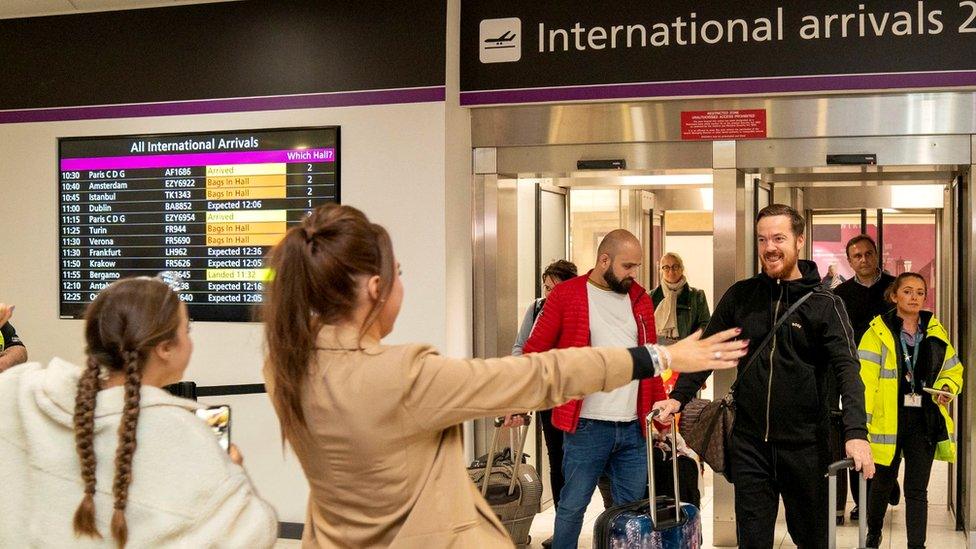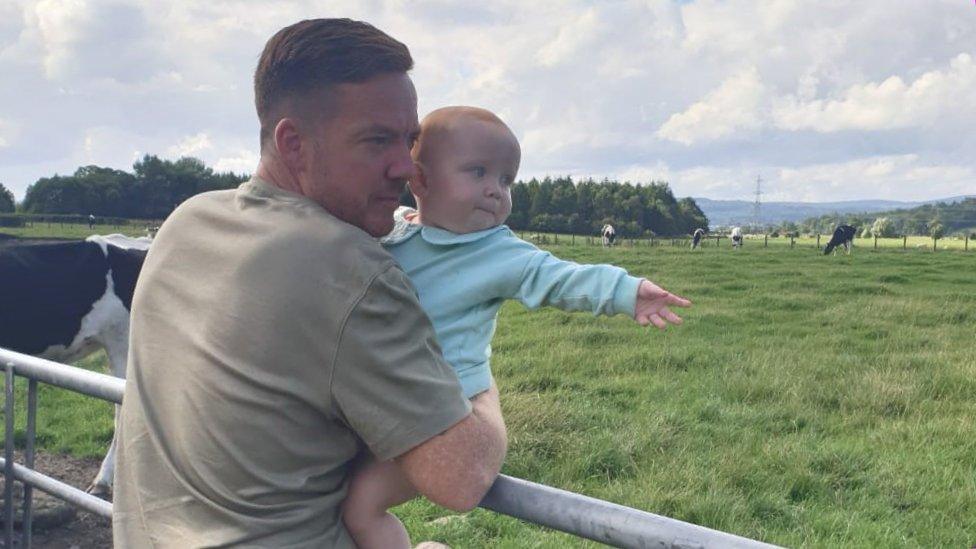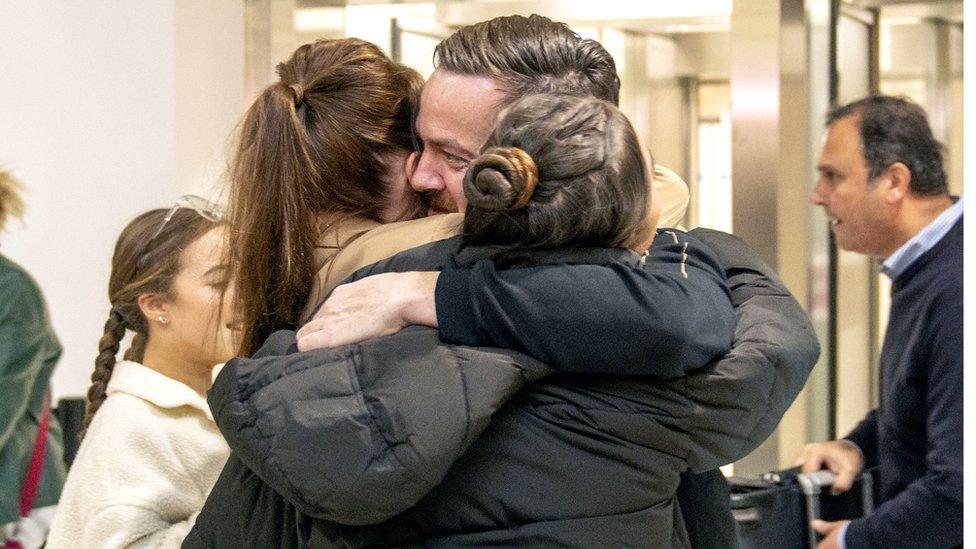Scot describes 'fight to survive' in Iraqi jail
- Published
Scot describes 'fight to survive' in Iraqi jail
A Scottish engineer who spent two months in custody in Iraq over an unpaid debt says every day was a "fight to survive".
Brian Glendinning arrived home earlier this month after being locked up in an overcrowded prison in Baghdad.
The 43-year-old was held over a conviction he was unaware he had while working on a previous job in Qatar.
Mr Glendinning did not know he was on an Interpol wanted list until he was detained on 11 September.
The father-of-three from Kincardine, Fife, was on his way to start a new job at the time.
He told BBC Radio's Good Morning Scotland programme he was initially held in Basra before being transferred to a jail in the Iraqi capital.
There he said he was put in a "very overcrowded" holding cell which, at its peak, had more than 40 prisoners in it.
Mr Glendinning recalled: "It had guys openly talking about murdering family members. It had rapists. It had drug dealers. It had people that spoke about being part of terrorist groups.
"I was just like 'Wow. Why have I ended up in here?'"

Brian Glendinning, pictured with his wife Kimberly, was arrested in Basra on 11 September
Mr Glendinning said he felt isolated as he did not speak Arabic but befriended a Lebanese man who spoke English.
The engineer added: "He helped me through the days but it was still mentally torturing for myself.
"He was the only one person I could kind of hang on to.
"Every day was just a fight to survive."
Mr Glendinning admitted he feared for his safety as he witnessed Iraqi prisoners being assaulted by guards.
He added: "I didn't sleep at night. I would sleep for a couple of hours during the day.
"It was a horrible place to be in and a place I would never wish anybody to be in, unless you really deserved to.
"In my eyes I didn't deserve to and there was other guys in there and I don't think they should be in that situation as well."

The moment Brian Glendinning saw his family for the first time in two months
He also claimed the guards did not care for the prisoners.
Mr Glendinning added: "I seen a guy nearly dying at my feet.
"I was even shouting 'This guy needs some help' and the guards are laughing at the bars.
"My friend, Hussain, turned round and said 'Brian, this happens a lot. We are the doctors."
Mr Glendinning enjoyed an emotional reunion at Edinburgh Airport on 19 November as his family, who campaigned for his release, met him from his flight from Istanbul
Scot back home after Iraqi jail ordeal
In his first broadcast interview the grandfather said he was "delighted" to be home but admitted it would take time to adjust after his experience.
He told the programme: "It has obviously been a big shock to myself and the family.
"I'm just looking forward to Christmas and trying to get back to some normality."
Mr Glendinning also said he now wanted to use his experience to "warn others".
He added: "I just pressed pause on my life when I got the handcuffs put on me in Basra.
"I pressed play when I got back out because I just want to try and erase that part in me. I didn't feel like a human. I felt like nothing in there."

Mr Glendinning, pictured with his granddaughter, was detained in Iraq for a crime he did not know he had committed
In 2017 Mr Glendinning was sentenced in his absence to two years in prison for defaulting on a debt.
He had agreed to take out a £20,000 loan with his bank in Qatar while working in Doha in 2016, but was not able to keep up full repayments when he lost his job.
His family said he was made redundant in 2017, while on sick leave at home in Scotland, but had kept in touch with the bank, not realising he had been convicted of a crime.
Mr Glendinning said: "I've not taken a bank loan and done a runner - I attempted to get in touch with them when I fell unwell and said 'look, I'm getting made redundant'.
"There was no response whatsoever from the bank."
He only discovered the arrest warrant meant he was on an Interpol red list when he was detained at Basra airport in September.
His brother sold his car to help pay his brother's legal bills, which within four weeks of his arrest had soared to £30,000.
Related topics
- Published19 November 2022

- Published14 November 2022

- Published10 October 2022
